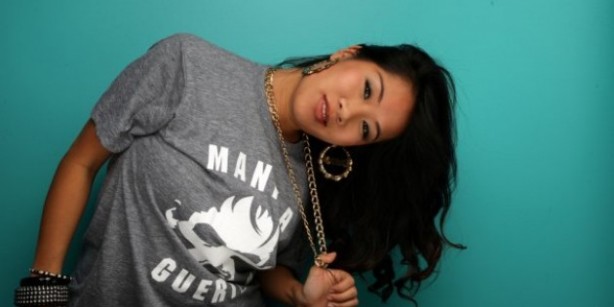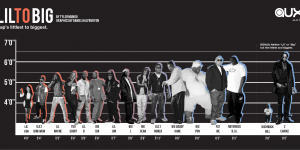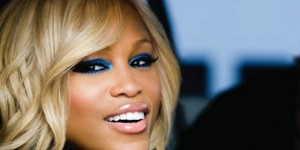 Music
Music
Masia One talks Nicki Minaj comparisons; claims the industry perpetuates stereotypes
by Anne T. Donahue
May 14, 2011
Hip-hop music should inspire. At least that’s what Toronto’s Masia One believes after her childhood spent listening to Public Enemy bootlegs evolved into a bona fide rap career that took her alongside the likes of Che Vicious and Pharrell. So if that’s the genre’s supposed ethos, why wouldn’t she want to be compared to Nicki Minaj?
“That’s something I’ve been thinking about a lot after the school tour that I did,” Masia One begins. “At every school that I went to, I got compared to [Nicki Minaj], and at first I was taken aback because my style’s nothing like [hers]. But the more I thought about it, I thought about [how] there’s no one else to compare a woman in the rap game to because that’s the only thing they’ve been exposed to.”
“When I was listening to Public Enemy when I was nine years old, I had no idea what they were talking about with the political words being said,” she elaborates. “But as a kid, I used to read up on anything [they’d] mention in their lyrics. But now I don’t know where kids would get a reference point to more interesting. What are you going to do? Drink Courvoisier? An introspective of cash, money, hoes?”
Comparisons to other female artists seem almost inevitable – especially since it seems the number of women in hip-hop seem manipulated to fit a specific role. But while Masia One applauds her contemporaries for staying true to their own inspirations, she’s baffled by how they seem oblivious to what she believes is the industry’s manipulation.
“What I always tell the girls is that I’m not [slamming] Nicki Minaj,” she maintains. “Because an artist, her inspiration is what she does, and very well – go ahead. But the thing is, my beef is more with the music industry and that they show no diversity whatsoever.”
“They only want to show one side of the coin,” she continues. “For example, when Nicki Minaj and ‘Lil Kim were having their battle [over who was the first ‘Barbie], I’m like, don’t you girls see? The industry wants you both to be Barbie, so it’s no coincidence that there’s only one roll open. And when Kim stepped out, they just filled it with [someone else]. It wasn’t anyone’s concept – it was the industry’s concept [about] the only way they’d show women.”
With a politically-themed mixed tape, Fear Of A Yellow Planet, in the works for the summer and a mainstream debut due out later this year, Masia One sees her upcoming releases a testament to change in the industry – at least in terms of gender roles and hip-hop’s content in general.
“When I put out my first record, I didn’t know what I was doing, and every interview was like, ‘so what’s it like being a female Asian rapper?’” she recalls. “And I just gave the same answer every time: ‘it’s like looking in the mirror.’ I don’t necessarily want to be identified by that, but as I progressed through and all the stereotypes of a woman in the industry and [saw] how the music industry does effect girls, I have a greater focus on being a female Asian rapper now because it is a voice that isn’t heard.
“I don’t mind being identified as that as long as I’m effecting change in that arena,” she adds. “I don’t think America’s ready to accept a female Asian musician, let alone an Asian artist. I don’t think that they’re ready for it, and they don’t know what to do with it.”
So with such an understanding of industry expectations, Masia One’s new focus on youth culture is relatively self-explanatory – or at least why she’s shying away from catering to ‘Barbie’ caricatures.
“I saw how much confidence is lacking in our generation – specifically in this generation of girls,” she reflects. “After coming off the school tour that I did, I realized there’s more that I could be doing to be reaching out to this generation of kids.”
“All these girls are joining my Facebook fan clubs and writing on the wall, but I wonder if half these girls know how much they inspire me,” she continues. “In having to deal with a lot of business and really antiquated businessmen, this kind of innocent and genuine hunger for music [youth] haven’t heard before – that’s inspiration to me.”
Tags: Music, Interviews, Che Vicious, Lil Kim, masia one, Nicki Minaj, Public Enemy





